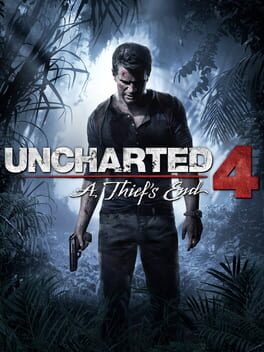This is not a good game to serve as a meditation and swan song on the series as this game positioned itself to be. The game obviously takes itself more seriously than the previous games, and takes the hint at a broader thematic message that was touched on in the third game, and tries to expand on it. The only problem is that the thematic content is ultimately pretty shallow. Perhaps the biggest issue with the first 3 games is the Orientalism that defines them. From using locations in the global south as playgrounds for violence, to the tired trope of the 'East' being a mystical and impenetrable place right down to long lost cities, and supernatural creatures, ideas that captivated much of the European Colonial mindset. All this happens with very little appearances from people indigenous to the regions of each of the games. You would expect the 4th game, positioning itself as a more serious entry, to actually address this sort of stuff in any meaningful way, especially since the core theme of the game is how the thrill of adventure is an often destructive one. However, this theme is exclusively reserved for Nathan's interpersonal relationships, most importantly, the relationship with his wife. This part is all done very well, with each of the characters feeling more real and there being a genuine emotional heart to this game that is conveyed in incredibly subtle ways. However, none of that is reserved for the inherently Orientalist nature of these stories. Sure Nathan can have an emotional car ride with his wife as reflective music plays, but he still drives through Kings Bay Madagascar, quipping with 2 other white guys about how many global south cities they've gunned their ways through.
This is essentially where the problem lies, there is a huge amount of nuance when it comes to the self-destructive nature of 'adventure' but none for when it comes to the actual physical destructive nature of 'adventure.' Really, all this blowing stuff up and fighting is just used as a vehicle for the characters to emotionally understand one another better.
A microcosm of this is how the Pirate Henry Every is used in the story. He is the trademark old figure that Nathan follows in this story, as he tries to find his hidden treasure. This treasure, in real life, was acquired in the Ganj-i-Sawai heist, an event known for its brutality. However, of course none of this is touched on, the only point made about the treasure is that it drove Every to self destruction as it is pointed out that his skeleton still remains amongst the riches. It is also not pointed out that Every was heavily involved with the transatlantic slave trade, as was Nathan Drakes hero, Francis Drake, someone who it is revealed in this game the Drake brothers actually named themselves after. It seems almost too on the nose that the guys that Nathan keeps relating to and following in the footsteps of, were slave trading bastards. You'd think an writer trying to make a more introspective story with this in mind, might think that this says something about the person who uncritically worships a slave trader, and how that might reveal his attitudes to the global south as simply a playground for destruction no? No, of course not, how would we have any time from that when Nathan has to stop his wife leaving him for the fourth time.
Keeping this in mind, it’s funny that the right wing gamers see Naughtydog, (and Druckmann) as ultra ‘woke’ blah blah blah, because the Uncharted series has an obviously conservative outlook, but hey they gave a woman big muscles or something.
This is essentially where the problem lies, there is a huge amount of nuance when it comes to the self-destructive nature of 'adventure' but none for when it comes to the actual physical destructive nature of 'adventure.' Really, all this blowing stuff up and fighting is just used as a vehicle for the characters to emotionally understand one another better.
A microcosm of this is how the Pirate Henry Every is used in the story. He is the trademark old figure that Nathan follows in this story, as he tries to find his hidden treasure. This treasure, in real life, was acquired in the Ganj-i-Sawai heist, an event known for its brutality. However, of course none of this is touched on, the only point made about the treasure is that it drove Every to self destruction as it is pointed out that his skeleton still remains amongst the riches. It is also not pointed out that Every was heavily involved with the transatlantic slave trade, as was Nathan Drakes hero, Francis Drake, someone who it is revealed in this game the Drake brothers actually named themselves after. It seems almost too on the nose that the guys that Nathan keeps relating to and following in the footsteps of, were slave trading bastards. You'd think an writer trying to make a more introspective story with this in mind, might think that this says something about the person who uncritically worships a slave trader, and how that might reveal his attitudes to the global south as simply a playground for destruction no? No, of course not, how would we have any time from that when Nathan has to stop his wife leaving him for the fourth time.
Keeping this in mind, it’s funny that the right wing gamers see Naughtydog, (and Druckmann) as ultra ‘woke’ blah blah blah, because the Uncharted series has an obviously conservative outlook, but hey they gave a woman big muscles or something.

burnoutenjoyer
2 years ago